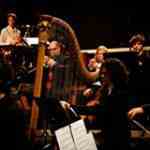Search the Community
Showing results for tags 'acient post'.
-
Hello, I'm a new member here and I wanted to ask you if anyone had tried to learn languages that were invented like J.R.R. Tolkien's Elvish or Klingon from Star Trek ? I'm really interested in those but I don't want to invest much time in something that is "useless".
-
Hi, I am 15 years old and live in Belgium. I've made my own language based on Dutch, since that is my native language, so I wanted to ask you what you think about it. It has grammar and spelling rules. Exemple: Minyèr é Mifrå Düllin, få Privet Drive Fire, šin ghát trót på så det šé pèrfèk normol šin ghát, tak jã yèl fèl. Šé šin ghát mèst låt mènzh jã fèvak bã ýits rår šin bãtrèk-bin, utát šé ýivün ní myètun på det usin. Minyèr Düllin šin ghát direktör på è firma nåm-bin Grüniñs, vi bórzh mákh ghát. Hã šin ghát è gru, flèši mann mit binå ní nek, mó hã yèb ghát è yèl gru snòr. Mifrå Düllin šin ghát tünn é blãt é yèb ghát binå Tvó mall normol iufèlet nek, vá nüsik šin ghát utát sã só fèl tit turbrèñ ghát á še kik uur tûnièkzh, á še spiòner på bürzh. Düllinzh yèb ghát è klėn són nåm-bin Dudli é i hün mènin r šin ghát ní bèr yuñ tó hün. Transaltion: Mr and Ms Dursley, from Privet Drive four, were proud to say that they were perfectly normal, thank you very much. They were the last people you expect to be involved by something weird, because they don't participate to that nonsense. Mr Dursley was the director of a firma called Grunnings, who/that made drills. He was a big, meaty man with almost no neck, but he had a very large moustache. Mrs Dursley was skinny and blonde and had almost two times the normal amount of neck, which was useful because she spent so much time watching over gardenfences, spying the neighbours. The Dursleys had one small son called Dudley and in their opinion there was no better boy than him. (From Harry Potter and the Sorcerers Stone by J.K. Rowling) GRAMMAR So for past tense (e.g. he was) I used the verb 'šin' (to be) and I add 'ghát', from the Dutch word 'gehad' (had), so you say 'Hã šin ghát direktör', which litterally translates to 'He is had director'. You also don't inflect verbs, so you say 'ö šin, jã šin, hã/sã šin, vi šin, yul šin, šé šin' (I be, you be, he/she be, we be, you be, they be). If you have a past participle you have the verb and you just add '-bin' (e.g. nåm-bin (called)). The bin is from the Dutch word 'ben' wich means 'to be', so you litterally say 'to name-to be). You don't use articles, so instead of 'the cow is eating' you say 'cow is eating' (ku èt). For the plural form of a word you add '-zh' so 'ku' (cow) in plural will be 'kuzh' PRONOUNCIATION: å ~ far ã ~ where š ~ shoot é ~ may è ~ where zh ~ like š, but softer ò ~ pork ó ~ boat ö ~ further ü ~ Für Elise u ~ you ñ ~ long The 'r' is rolled like in Spanish (or Dutch, or any other language with a rolling r) So thank you for reading the full article, and I'd love to know your opinion, thank you very much.


